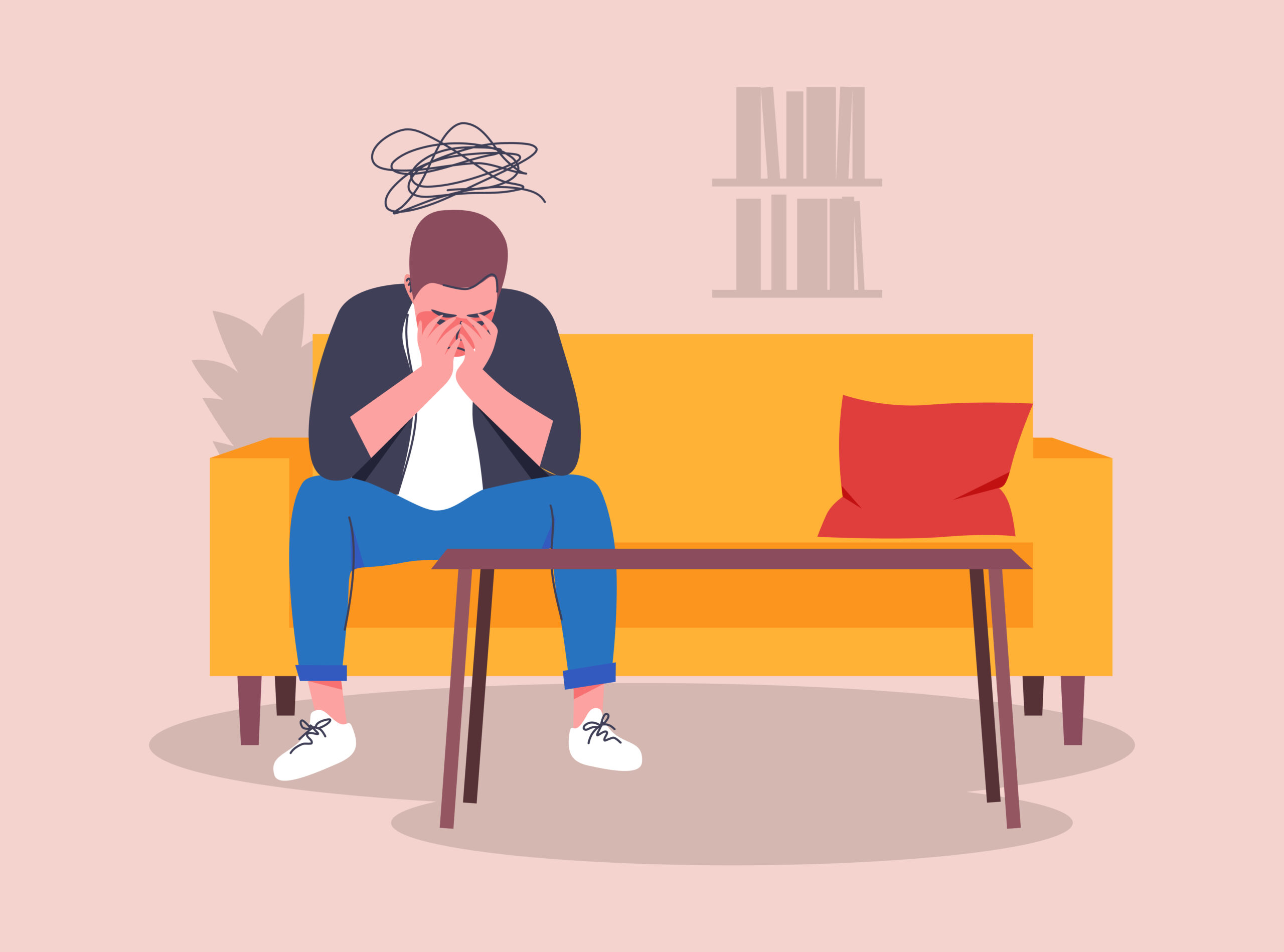In today’s world, we talk more openly about mental health than ever before—but for many men, the idea of going to therapy still carries a quiet stigma. You might have heard it yourself: “Just suck it up.” “Don’t be soft.” “Deal with it like a man.”
These messages, often internalized from childhood, shape how many men view emotional vulnerability. The result? Far too many suffer in silence—navigating stress, anxiety, depression, or relationship strain without ever seeking support.
At Evergreen Therapeutics, we believe it’s time to challenge the outdated myths around masculinity and mental health. Because the truth is, seeking therapy isn’t a sign of weakness—it’s a sign of strength, self-awareness, and courage.
Myth #1: “Real Men Don’t Talk About Their Feelings”:
This myth may be the most pervasive—and the most damaging. From a young age, many boys are discouraged from expressing sadness, fear, or confusion. Emotional expression is often labeled as “feminine” or “unmanly,” while stoicism is praised.
But emotions don’t disappear when we ignore them. They show up in other ways: in chronic stress, irritability, anger outbursts, drinking, workaholism, or emotional withdrawal in relationships. These are real and valid coping mechanisms—but they often come at a cost.
Therapy offers a space to break that cycle. It’s not about spilling your soul or becoming “too emotional.” It’s about developing the tools to better understand yourself and navigate life’s challenges without bottling everything up.
Myth #2: “Therapy is for Weak or Broken People”:
Men are often socialized to believe they need to be self-reliant—especially when it comes to emotional or mental struggles. That belief can create a huge barrier to reaching out.
But here’s the reality: everyone struggles. It doesn’t matter how successful, independent, or resilient you are—stress, grief, trauma, and emotional fatigue affect all of us. Therapy isn’t a last resort for the broken; it’s a proactive choice for people who want to live with more clarity, connection, and emotional freedom.
We often say, “You don’t wait until your car breaks down to give it a tune-up.” The same goes for your mental health. Seeing a therapist can be like routine maintenance—helping you function at your best and catch issues before they become crises.
Myth #3: “If I Can’t Fix it Myself, I’m Failing”:
This one hits deep for many men. The pressure to be the problem-solver, the provider, the one who always holds it together—it’s enormous. But here’s the truth: no one has all the answers. And no one is meant to carry everything alone.
Therapy isn’t about giving up control. It’s about gaining new perspectives and practical strategies for managing stress, improving communication, regulating emotions, and navigating relationships more effectively.
In fact, many men find therapy action-oriented and goal-driven, which resonates with their desire to “do” something about their situation. The process can be structured, focused, and empowering.

Common Reasons Men Come to Therapy:
If you’re not sure whether therapy is “for you,” consider some of the most common reasons men walk through our doors:
● Chronic stress and burnout, especially related to work
● Anger management or frequent irritability
● Relationship issues, including communication problems or emotional distance
● Grief and loss, whether recent or unresolved
● Anxiety, depression, or panic attacks
● Life transitions (e.g., fatherhood, job changes, aging)
● Trauma or past abuse, even if buried or minimized
● Feeling numb, disconnected, or “just not yourself”
You don’t have to hit rock bottom to start therapy. The sooner you begin, the more tools and support you’ll have to navigate life on your own terms.
How We Support Men at Evergreen Therapeutics:
At Evergreen Therapeutics, we understand that therapy for men isn’t one-size-fits-all. Our therapists are trained to create a space that feels respectful, practical, and aligned with your needs. No jargon. No pressure. No judgment.
We often use evidence-based approaches like:
● Cognitive Behavioral Therapy (CBT) – for practical strategies to manage anxiety, stress, and negative thinking
● Mindfulness and stress-reduction tools – to help with emotional regulation and mental clarity
● Solution-focused therapy – to work toward specific goals in a forward-looking way
● Trauma-informed therapy – for those who’ve experienced adverse life events or ongoing stress
We also offer a male therapist for those who feel more comfortable speaking with someone who may share aspects of their lived experience.
A New Definition of Strength:
We believe it’s time to redefine what strength really means. Being strong doesn’t mean never struggling—it means being honest enough to ask for support when you need it. It means taking action to improve your life and relationships, not just enduring them.
Therapy is not about changing who you are. It’s about helping you understand yourself better, so you can live with more purpose, peace, and emotional freedom.
Ready to Talk? We’re Here:
If you’re curious about therapy, even just a little, that’s a sign of strength. You don’t have to figure everything out alone.
At Evergreen Therapeutics, we offer confidential, compassionate support tailored to men’s unique mental health needs. Whether it’s your first time considering therapy or you’re returning after a break, we’re here to meet you where you are.
Reach out today for a free consultation or to book your first session.
Your mental health matters. And yes—therapy is for you.
If you are interested in speaking with a professional and you reside in Ontario, Canada, please do not hesitate to contact us at admin@evergreentherapeutics.ca. We offer a team of psychotherapists who treat a variety of mental health concerns and work with individuals, couples, and families. Visit our website www.evergreentherapeutics.ca for more information.



